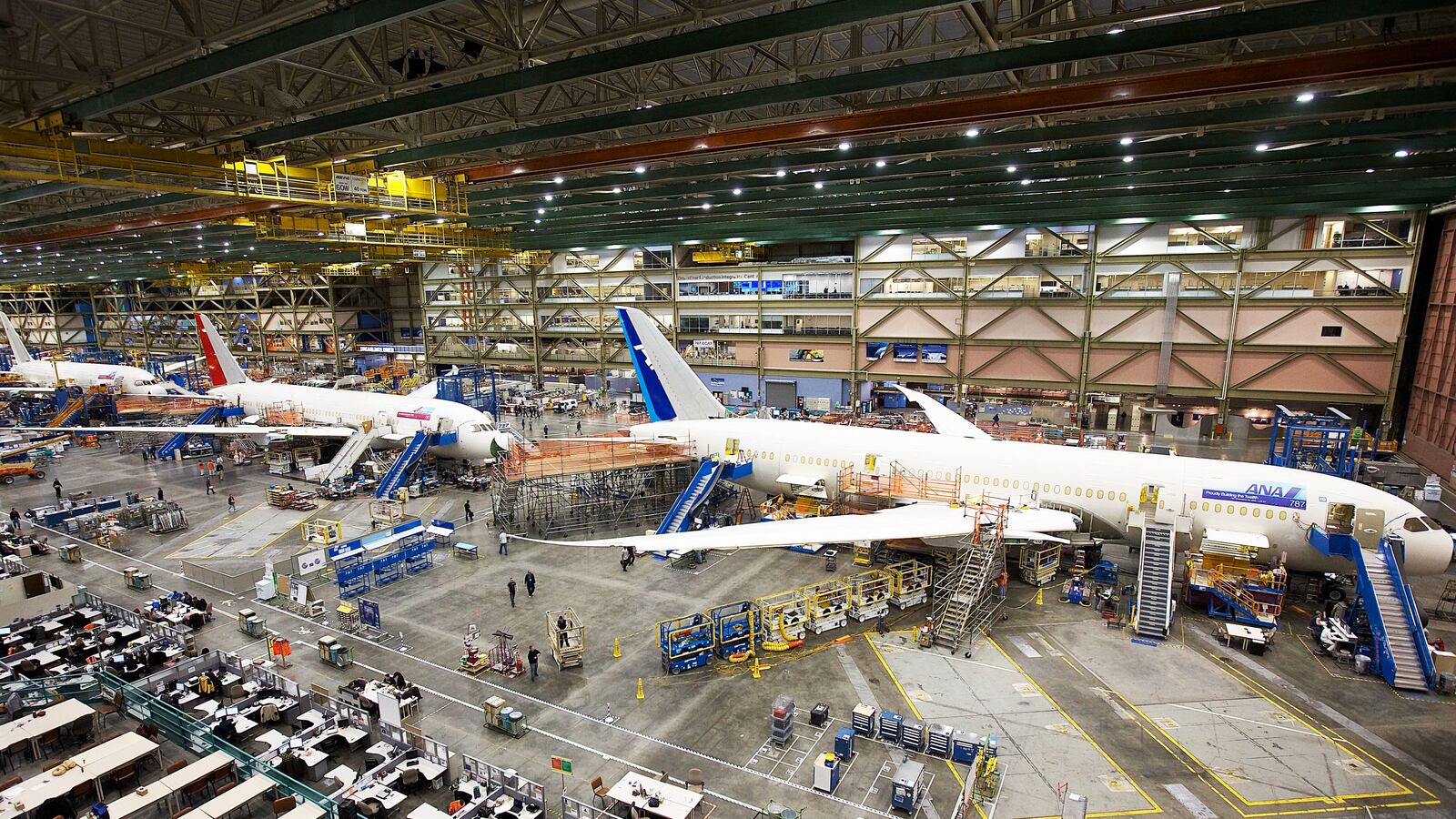Airline manufacturer Boeing has been hit by new claims of safety lapses–this time in the construction of its long-distance 787 Dreamliners.
A former quality-control manager at its factory in Everett, Washington has alleged that workers routinely retrieved parts deemed unsuitable for flight from an internal scrap yard and used them in aircraft assembly.
Merle Meyers, a 30-year veteran of the company, made the allegation in a TV interview on CNN, the latest blow to a company reeling from a series of safety lapses.
“It’s a huge problem,” Meyers told CNN. “A core requirement of a quality system is to keep bad parts and good parts apart.”

Merle Meyers alleged to CNN that parts which failed safety inspections were taken from Boeing's "scrap" pile and used in the manufacturing process.
CNNAccording to Meyers, the practice of using defective parts was part of an organized effort to meet crushing production deadlines. He estimated that about 50,000 parts, from minor screws to complex assemblies like wing flaps, bypassed quality control and were used in aircraft construction over more than a decade. These parts were often marked with red paint to indicate their unsuitability, yet they still found their way onto the assembly lines.
The CNN exposé comes at a time when Boeing is already under intense scrutiny for a series of safety issues. Meyers' allegations add to a growing list of concerns raised by multiple whistleblowers this year, including claims that Boeing concealed defective parts from Federal Aviation Administration (FAA) inspectors.
These allegations are part of a broader crisis for Boeing, which is still reeling from the fallout of the 737 Max tragedies in 2018 and 2019 that claimed 346 lives. The company is under criminal investigation for potentially misleading the FAA during the certification process for the 737 Max. This investigation has led to potential criminal charges and plea deal for Boeing to address its liabilities, CNN reported last week.
In a statement to CNN, Boeing did not deny Meyers' claims but emphasized that it investigates “all allegations of improper behavior, such as unauthorized movement of parts or mishandling of documents.” It said the quality team Meyers had worked on “plays an important role in identifying issues, improving processes, and strengthening compliance in our factories.”
“We appreciate employees who raise their voice and we have systems in place to encourage them to speak up confidentially or anonymously,” the statement to CNN said. The company admitted last month to retaliating against whistleblowers in the past but maintained that was no longer the case.
However, Meyers paints a different picture of the company's internal response mechanisms. He claims that despite repeatedly flagging these issues to Boeing's corporate investigations team, his concerns were often ignored. According to Meyers, the investigations were more about rationalizing the actions of those violating protocols rather than addressing the compliance breaches.
The pressure to maintain production schedules at Boeing's Everett factory was intense, according to Meyers. This environment led to practices such as workers sneaking parts from supply rooms and newly arrived components bypassing quality inspections. The problem was exacerbated when employees started pulling parts from Boeing's scrap yard in Auburn, Washington.
Meyers' decision to come forward was driven by a desire to see Boeing improve. Despite taking a buyout from the company last year - a cash payment in exchange for quitting - he continues to advocate for change, sharing his concerns with federal investigators, a Senate panel, and the media.
“Hopefully we can get this company to heal and be what it was,” he said.





